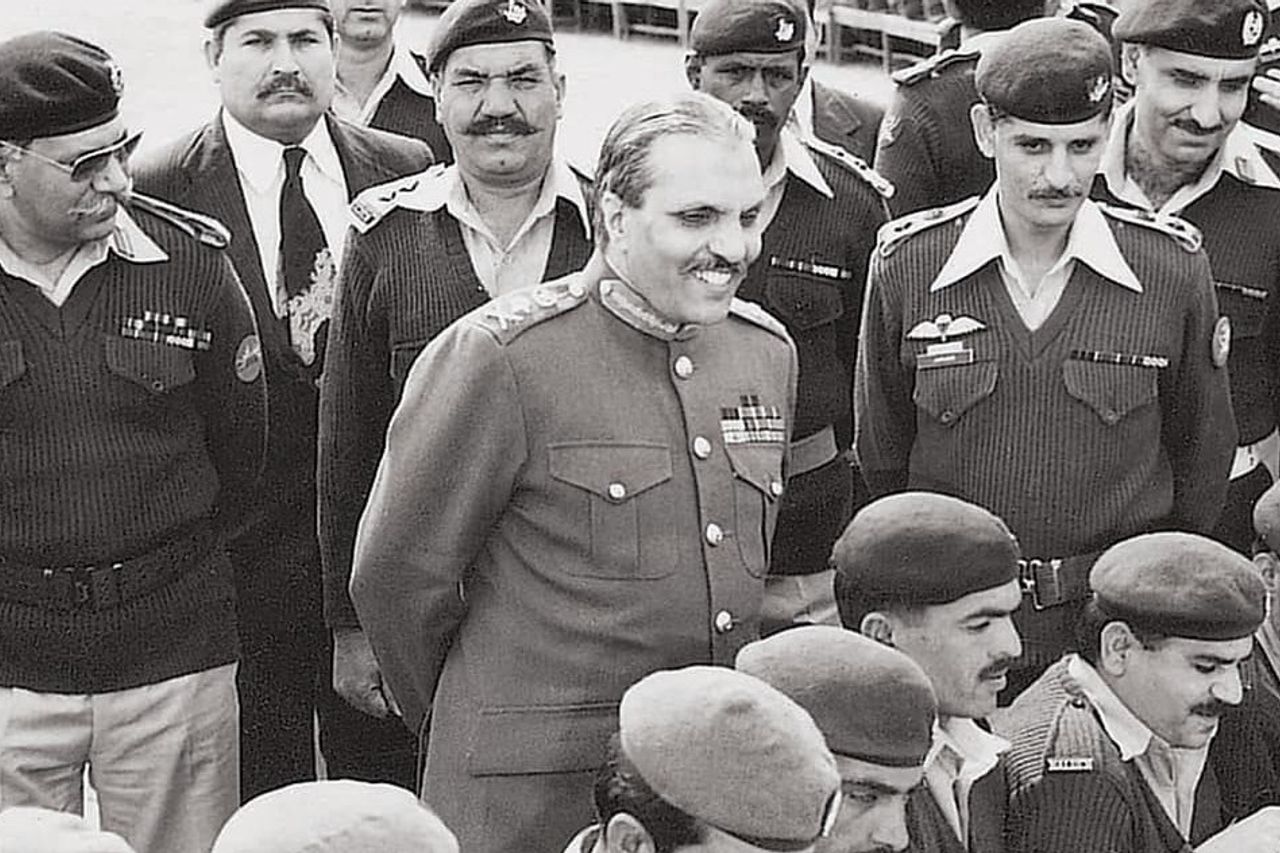Pakistani Leader General Zia Ul-Haq Disbands Parliament In History Today, May 29, 1988

JAKARTA History today, 36 years ago, May 29, 1988, Pakistani President Zia ul-Haq dissolved the National Assembly (Parliament). The decision was taken because General Zia considered the people's representatives to be often half-hearted in implementing Islamic law in Pakistan.
Previously, General Zia was known as a loyalist of the Prime Minister (PM), Zulfikar Ali Bhutto. He was appointed Army Chief of Staff (AD) of Pakistan. Problems arose. The appointment led Zia to control the military. He also turned to shake up government power through a coup.
Muhammad Zia ul-Haq is a famous military figure in Pakistan. He has served in Pakistan's AD. He has tasted various positions in the military corps, from 1947-1972. His career continued to shine until Zulfikar Ali Bhutto was attracted.
The Pakistani PM considers Zia as a capable leader. His position was raised as Army Chief of Staff. This position made Zia widely known as loyalist Ali Bhutto. However, the world of dynamic politics. Today could be a friend. The next day it could be an opponent. Zia and Bhutto's relationship was like that.
Zia began to think that Ali Bhutto's leadership had many disadvantages, rather than benefits. Ali Bhutto's regime is considered corrupt and often uses power. This condition was seen when Ali Bhutto won the election which was held on March 7, 1977.
Zia considers Ali Bhutto to have cheated. This condition made Zia launch a coup on July 7, 1977. The coup was able to get Ali Bhutto out of power. Zia even put Ali in a prison seat. Ali Bhutto was charged with the death and hanging law.
This condition made Zia serve as Head of the Military Emergency Administrator. He then moved to change the constitution and remove the position of PM. The abolition made the President the highest head of state. The position was immediately occupied by Zia.
Zia's government also applies Islamic law. This power is supported by the power of militaryism. He tried to become a pro-people leader. Zia's supporters grew. Zia brought Pakistan into a strong country. Moreover, Zia herself is a devout Muslim.
Zia often increases the lives of the ulama. Zia's only problem is her repressive government. Conditions make them anti-criticism, especially criticism from loyalists Ali Bhutto.
Overall, he lived a simple life and five days of prayer. However, efforts to implement Islamic law are also seen as helping him strengthen political support from many, even most religious leaders.
Under the leadership of General Zia, the Government has favored the ulama by building mosques in rural areas, providing greater access to mullahs (ulama). He also appointed many mullahs to the advisory group, "said Steven R. Weisman in his writing in The New York Times newspaper entitled The 'Islamization' of Pakistan: Still Moving Slowly and Still Stirring Debate (1986).
The application of Islamic law did not go smoothly. He often gets criticism from here and there. Criticism even emerged from members of the National Assembly council. They think that Islamic law is no longer suitable for enforcement in Pakistan.
SEE ALSO:
This condition made the National Assembly half-hearted in expanding Islamic law in Pakistan. Zia was furious. He views that legislators have failed in their duties. He is no longer able to give space to opposition parties always attack his policies.
Zia is of the view that Pakistan would be better off without a disruptive political party. He also chose to dissolve parliament on May 29, 1988.
The National Assembly has failed to realize its election goals. Prime minister Mohammed Khan Junejo is no longer prime minister starting today, as the National Assembly has been dissolved, "said Pakistani President Zia as quoted by the Los Angeles Times newspaper in his report entitled Pakistan's Zia Dissolves Assembly, Fires Prime Minister (1988).
